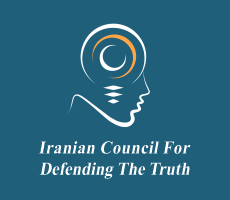That the Russia-Ukraine conflict could fundamentally influence the international order and Europe’s geopolitical map. I certainly feel that the European Union and NATO have to be considered a growing factor in the China-Russia-US triangle. For some time, the US and EU have viewed China as a growing economic and military rival, but Russia is once again in the forefront as a threat to world stability. The real question is will Russia emerge from the Russia-Ukraine conflict stronger or weaker? If it is stronger then Russia will feel emboldened, if it is weaker will that favour China?
The Russia-Ukraine conflict will fundamentally change Europe’s geopolitical map. Russia’s actions in Ukraine have made the rest of Europe feel insecure and has pushed Finland and Sweden into the arms of NATO. Both countries have long valued their neutrality, but in the case of Finland talk of Putin restoring the old Soviet borders has caused growing alarm in the Baltic.
NATO will feel obliged to accept new members and to step up defence spending, which while perfectly understandable does nothing to reduce tensions. Russia has already been threatening Finland of the consequences should it join NATO. The main impact the conflict has had on the rest of the world is highlighting the issues of financial, food and fuel security and the interdependency of the global economy. Reliance on Russian energy and Ukrainian grain is causing major problems for many countries.
The Russia-Ukraine conflict has gone some considerable way to reinvigorating NATO. Ukraine looking to the future will want more than ever to join the alliance. Prior to the war NATO instructors were already training the Ukrainian military and that has evidently had an impact on its combat performance. Furthermore, who could have predicted that Finland and Sweden would want to join the alliance? It is conceivable that Armenia and Georgia in the Caucasus might hope to join at some stage.
NATO though needs to tread carefully because Putin has made it very clear that further NATO expansion is a red line. A lot depends on whether he has the capabilities to prevent it; the best available evidence suggests not. Any military action against Finland would affect Norway, which has a border with Russia and is a NATO member.
Russia-Ukraine conflict signals that Russia under Putin’s rule is continually prepared to resort to military means to achieve its policy goals. Diplomacy over the future of Ukraine’s membership of the EU and NATO did not work. NATO in particular will now be watching very closely how the Russian Army is performing. The number of troops committed to the invasion were never sufficient to occupy the whole of Ukraine, which gave some truth to Putin’s claim it was just a security operation. If Putin’s wanted to weaken Ukraine and create a buffer, he may have hoped to seize all of the country east of the Dnieper River. Clearly though the Russian Army did not have the capability to achieve that or indeed take Kyiv.
There is likely to be an escalation in the fighting at some stage in Ukraine, as it is highly improbable that Vladimir Putin will just give up. He needs to secure at least one significant victory – initially, it seemed his goal was Kyiv, which would have been a major blow to the Ukrainians. At best we can hope for a ceasefire, but Russia and Ukraine are likely to remain in a state of hostilities for possibly decades. It is important to remember that they have already been at war for eight years following Russia’s seizure of Crimea and its backing for the breakaway Donbas republics. I doubt the Russia-Ukraine conflict will spark a wider war, but a lot depends on Putin’s next moves.
It’s hard to understand Putin’s logic. Russia is so vast it has little reason to fear Europe. Strategically its biggest concerns should be America and China. However, you can understand his unease about NATO steadily marching east after the demise of the Warsaw Pact. The prospect of Ukraine joining NATO meant the alliance could drive a very large wedge into Belarus and Russia’s southern flank. Putin seems to have convinced himself that Ukraine is an inviolable part of Russia, despite the Ukrainians wanting independence after both world wars. Nonetheless, even Belarusian President Aleksandr Lukashenko has looked uneasy during his televised meetings with Putin, suggesting he is not fully supportive of the war. The continued longevity of Putin and Lukashenko, who are both in their late 60s, must be open to question.
The western media has very much portrayed Ukraine as the victim of Russian aggression and the underdog. It has certainly helped rally public opinion and western governments to the Ukrainian cause. This though has ramped up tensions between the EU and NATO on one hand and Russia on the other. It is hard to argue that the EU and NATO are neutral when they have been so openly supplying the Ukrainians with a steady flow of hi-tech modern weapons. The constant improvement of Ukraine’s military capabilities potentially means an armed standoff is the most likely outcome.

